- What John Lennon Thinks of Donald Trump - November 14, 2016
- The Meaning of Fun: The Paul is Dead Rumor - February 3, 2016
- BEATLES-STREEP-SHEA SHOCKER: IT’S NOT HER!!!! - August 13, 2015
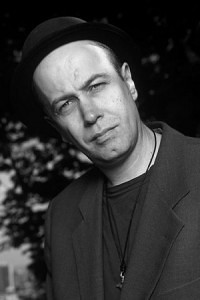 DEVIN McKINNEY • “I’ve never come across a story that fascinated or moved me more than this particular one. The end of the Beatles was convoluted and acrimonious, but it was also transcendent.”
DEVIN McKINNEY • “I’ve never come across a story that fascinated or moved me more than this particular one. The end of the Beatles was convoluted and acrimonious, but it was also transcendent.”
Read this if you haven’t. It resonates nicely with discussions that have gone on here, mainly between Michael and various of our correspondents, about why the Beatles broke up. It’s by Mikal Gilmore, journalist, critic, and author of Shot in the Heart, one of the best books I’ve ever read.
It is an excerption from Gilmore’s 2009 Rolling Stone article, as well as prologema to his planned 2013 release, The Winding Road: The Real Story Behind the Breakup of the Beatles. Some of it you’ll agree with, some of it you won’t, all of it you will find worth the head space.

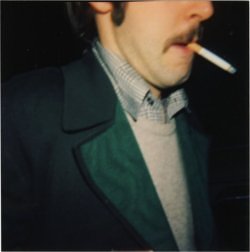
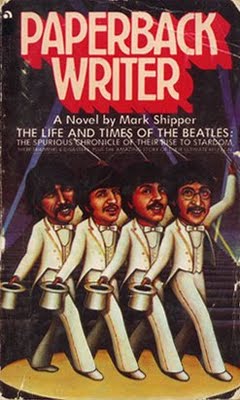
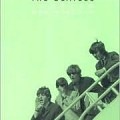
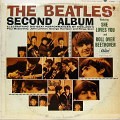
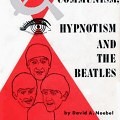

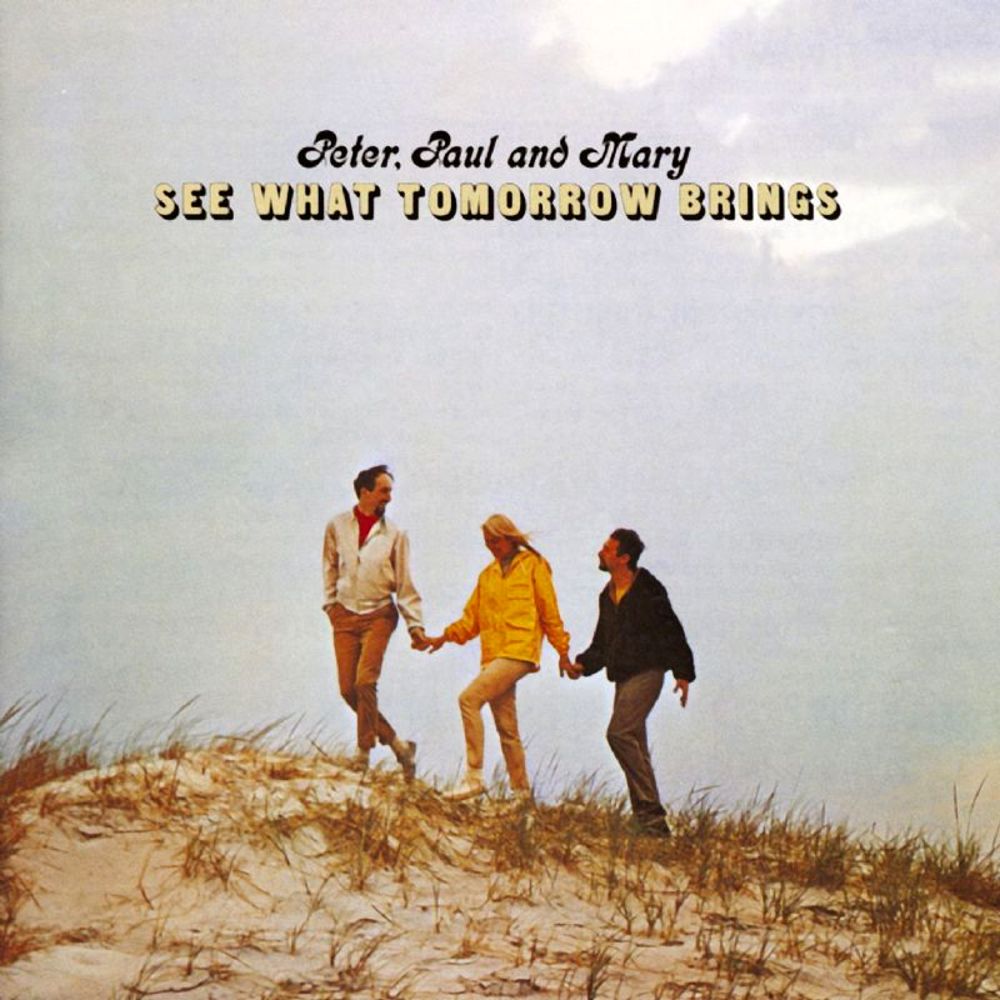
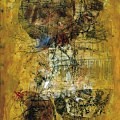
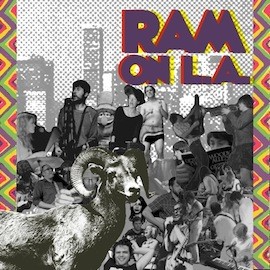
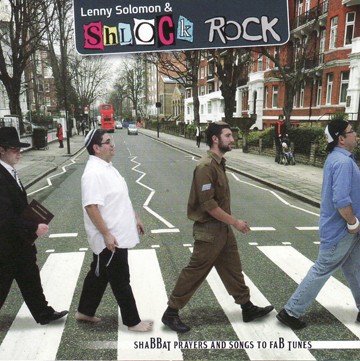

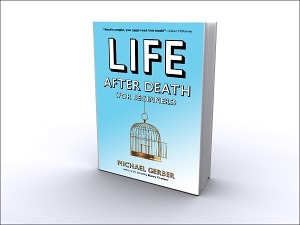
Thanks for posting the link to this excerpt, Devin. I’m sorry to hear that Gilmore’s book won’t be coming out until 2013, since it seems likely to be one of the smartest and deepest books to examine the band’s legacy.
Glad you liked it, Nancy, I knew you-he-she-they-we would. I can’t wait that long for the book either, though I will. Gilmore indicates on his Facebook page that the Beatles book will be “a short meditation on the [band’s] dissolution.” I hope that the richness of the subject will induce him to expand his meditation from short to long.
Well said, Michael! It’s well past time to jettison the line about John being the only genius of the group.
That line — repeated by the rock press, with RS in the lead — has contributed to opinions like that expressed by “Kady” in a comment on a recent Vanity Fair article about the McCartney reissues. She wrote of McCartney: “Like the rest of the Beatles, he just rode John’s coattails.” It’s as if for some people appreciating Lennon’s greatness requires downplaying that of the other three-fourths of the band. Yet that music just wouldn’t have gotten made without all four of them working together.
I tend to think that the breakup occurred both because of the power dynamics you and Gilmore describe between Lennon and McCartney and because in 1967-68 Lennon wanted to restart his whole life — ditching not just Cynthia and Julian but his entire past, and starting over.
Nice find, Devin. I am looking forward to the book. If you go to RS and search for the piece, you get a slightly longer version.
Now that we’ve dispensed with the “Lennon Remembers” version of the breakup, can we also quit saying things like Lennon was the genius of the group? Sgt. Pepper, Abbey Road, “Hey Jude”–each of these punch Paul McC’s genius ticket, too. And as much as I love it, the Lennon-dominated Beatles sound dated, in the same way that “Heartbreak Hotel” sounds dated (and Abbey Road does not). Literally to the end of his life, Lennon was infatuated with a sound and style that the rest of the world discarded after, well, The Beatles.
Rolling Stone’s big crushes–Lennon and Dylan–aren’t musical geniuses as much as literary/cultural ones; and rock writers saw themselves in Lennon and Dylan, while McCartney’s or Brian Wilson’s kind of talent remained alien. But the whole reason Rolling Stone came to be–the idea of rock as art, and its creators as auteurs–was much more Wilson and McCartney than Dylan or Lennon. Lennon hadn’t a clue where The Beatles could or should go after the four-minute single, and Paul did. THAT was McCartney’s unforgivable sin, and what kindled the rage that led Lennon to destroy the group. It was garden variety pride, magnified by narcissism, drug use, and probably mental illness; but instead of admitting that, and trying to overcome it, Lennon kept pretending that he was stifled, or that being a Beatle was somehow beneath him. That was bullshit, because he more than anybody–even McCartney–determined what being a Beatle meant. “Revolution #9” made it on an album; “Carnival of Light” didn’t.
The Beatles were dead the moment Lennon jettisoned the egalitarian/body-centered/American/improvisational ethic of rock for the elitist/head-bound/European/theoretical one of the avant garde. And it must be said that the following 50 years have proven that the vast majority of 60s-70s avant garde WAS bullshit; the lasting culture has proven to be “Hey Jude,” not “Revolution #9.” So who was the authentic one, and who was just being trendy?
But of course it was Lennon (and Ono’s) following of fashion that made them such good copy, and that’s the real reason RS consistently praised Lennon and dissed McCartney–Lennon gave better quote, sold more magazines. The question is–and this can never be answered–what role did “Lennon Remembers” have in making the breakup irrevocable? Is the rock press complicit in the breakup, and/or keeping them apart?
Without question that’s part of it, too, Nancy.
Having just watched the Masterpiece Theater from last October, “Lennon Naked,” I feel more strongly than ever that one can’t blame Lennon for wanting more, but also that it’s such a goddamn shame that there was nobody in his life to help him work through all those issues.
Michael, I wanted to add that I also agree with you about the role drug use, particularly Lennon’s, probably played in the breakup. It had to affect not only his own decision making but also the way the rest of the band perceived him. It must have mattered to them that John’s relationship with Yoko and his new ideas for what the band should do came bundled with his new use of heroin, for example. And his extensive use of LSD is also clearly relevant to the time of the breakup, and very likely to the rest of his life as well. (In much the same way, I don’t think it’s possible to understand McCartney’s post-Beatles career without confronting his heavy use of marijuana and alcohol.)
About Gilmore’s book: I preordered it ages ago, and it was originally coming out sometime near the end of last year. Clearly a thorny subject with which to wrestle, and I also hope that he expands it from being a “short meditation.”
So true, I think, about the reasons for glossing over how destructive drugs were in the Beatles’ story (and other, similar rock-n-roll stories). I was basing what I said about McCartney and alcohol from his comments in recent magazine articles about the state he was in just before recording “Ram,” which evidently involved lying around that Scottish farmhouse drunk a lot. (Linda must have had a lot of stamina and patience.)
I agree about Lennon’s self-loathing being at the root of his lashing out at others. That said, some of his behavior still sickens me. His initially trying to divorce Cynthia on the grounds of HER adultery — after he’d compulsively confessed years of unfaithfulness to her — and then saying that her receiving money in the divorce settlement was like “winning the pools” is the prime example of his striking out while also presenting himself as the victim. It’s as if he couldn’t leave Cynthia or the Beatles without making her, and them, the villains of the piece.
If only, as you say, Lennon had been more able/willing to get substantive help with these patterns of behavior and thinking. Rishikesh and Janov were demanding some hard, scary work — given his past, it would take a lot of patience, energy, and support to bear what might be revealed.
Here’s another tough hypothetical question I ask myself, though: would I have him mentally and emotionally healthy if it required giving up the music he made? (What would the music have sounded like if he’d been happier and healthier all those years? Would he have made as much? No end to those questions . . . .)
Nancy, think about what Lennon produced during his attempts at health: Rishikesh generated so much material he mined it for years; Janov was directly responsible for John Lennon/Plastic Ono Band.
It’s a hypothetical, sure, but whenever Lennon stopped the drugging and faced his crap, good material resulted, and a lot of it.
Can you send me your email, please? I’d like your opinion on something I’m working on.
Good point about what Lennon did when he was in better health/spirits, Michael. Some of his songs on “Double Fantasy” are happy AND great, so you’re likely right, since he seemed to be digging out of a hole about then.
I’m sending my e-mail address to the address you list on your website. I’d be happy to hear about your project!
Nancy, that’s the $64,000 question–when will Beatle history come clean about the destructive role of drugs within the group? Yes, uppers and then pot got them through Hamburg and the mania, but after that first LSD trip or five, I can’t see many benefits. Cocaine gave us Sgt. Pepper, but how much of McCartney’s “bossiness” came from that? And certainly heroin was baleful as hell.
It’s really important to the keepers of the 60s flame that such stuff not get talked about, because the right wing is so anti (certain randomly illegal) drugs. I think that’s what really drove them crazy about the Goldman book, how it showed John and Yoko as junkies. It’s very important to the Lennon story that he straps himself to a chair and kicks in 1969–our boy is stronger than horse!–then writes a song about it–our boy transmutes his pain into our pleasure! And maybe that IS what happened, but does that fit with the rest of Lennon’s life? The guy who figured out a way to ditch out of Rishikesh, and then did the same thing with Janov? And then bailed on his marriage? And then bailed on his separation? Is that person someone who could show H who was boss? Or is a rock star with an image to protect? And if it’s the latter, doesn’t that fit with his undeniable self-loathing, and his well-documented hatred of the fans for believing the lies? He says “Fuck you, brother or sister” or “Fuck Paul” when he feels, “Fuck me, I’ve made a mess of this.”
Back to ’66-’67: Can anybody doubt that Cynthia’s resistance to taking LSD at the same massive rate as her husband, helped drive them apart? And can anybody doubt that Yoko’s introducing John to heroin helped bring them together?
More than anything, I see a guy doing things, being ashamed of them, then justifying them and laying that shame off on other people–“they’re judging me”, when in fact it’s really him judging himself. So he’d get full of self-loathing and do something stupid again, which would restart the cycle. And because he was so rich and famous, he became surrounded by people who didn’t want to break that cycle, but manipulate it to their (not his) advantage. How is this any different than a million other celeb stories, from Fatty Arbuckle to Charlie Sheen?
I knew Macca was/is a profound weedster, but I didn’t realize he’d used a lot of alcohol, too. Makes perfect sense, though. Nobody escapes unscathed, because it’s not personal. It’s neurological.
Lest anybody think this is overly harsh, my feeling is that The Beatles were no more or less savvy about chemical use than the rest of their generation, so many of whom were wrecked or died. It’s key to tease out the good parts of the counterculture from the bad ones. Saying it’s all good, or all bad, is what’s given us this lovely culture war; and Lennon is an icon (perhaps THE icon) of the all-good part. But apart from the fact that the all-good stance plays into the hands of the all-bad argument, it hurts people to be icons, and while JL isn’t here to be hurt, that’s what makes me so wary of Rolling Stone re: Lennon.
hey nancy–no email on my end–try contactmike@mikegerber.com.
What gives me pause about Mikal Gilmore is this sentence he wrote in that piece about why the Beatles broke up: “Though Lennon is more commonly regarded as the Beatles’ true genius (which is inarguable: he wrote the bulk of their masterpieces and until the last couple years of their career, wrote the best tracks on their albums), …”
That is not inarguable nor is it even remotely accurate. The LAST thing we need is yet another writer analyzing the Beatles through a haze of Lennon worship. John was NOT the Beatles’ “true genius.” He did NOT write the bulk of their masterpieces; Paul wrote just as many although I’m sure Gilmore only views the masterpieces as the ones John wrote. I’m sure he’s one of those types who rave on and on about Strawberry Fields Forever, and never acknowledge that Penny Lane was just as much of a masterpiece lyrically and musically.
And please don’t give Lennon credit for Tomorrow Never Knows as that song was the product of everyone in the band as well as George Martin and Geoff Emerick. Heck, Lennon even got some of the lyrics from that Leary book, so to credit Tomorrow Never Knows as “Lennon’s masterpiece” is garbage.
That said, I did appreciate that Gilmore realized that Paul was not the sole aggressor in the Beatles breakup and that, indeed, he was put into a terrible position by John and George. Not to say Paul was an innocent victim; he made mistakes too. But it was nice to see an account that didn’t paint Paul as manipulate and pretend that John wasn’t just as manipulative.
So I have mixed feelings about the prospects of his book being fair.
Finally, Michael, your posts are very eloquently put and you make a very strong argument.
Michael: But is it really accurate to say that Paul was Old Showbiz and John was New Showbiz when Paul-dominated Beatles albums sound fresh and John-dominated Beatles albums sound “dated,” as you say.
This sentence you wrote resonated with me: “And as much as I love it, the Lennon-dominated Beatles sound dated, in the same way that “Heartbreak Hotel” sounds dated (and Abbey Road does not).”
I think you could make a similar argument about their early solo work. John’s albums (Plastic Ono Band and Imagine) sound, dare I say it, old school, while Paul’s (McCartney and Ram, especially) sound like they could have been indie works created just last year. Strange isn’t it, given how much grief Paul took for Ram, that today it’s being celebrated as a “proto-indie masterpiece” as it was described just last week on Pitchfork’s Web site.
I’m not denigrating John’s solo albums, songwriting, or genius. I just think it’s interesting that while Paul may have been perceived at “old showbiz” in the 70s, today it his Paul’s early solo work that has been the subject of 3 indie tribute albums in the last 2 years alone. It’s Momma Miss America that has been sampled on countless rap records (by the Beastie Boys, Common, The Roots last year, and a Brazilian rapper named Laws just this month). And it’s Temporary Secretary that’s been getting played in clubs in the past year or two.
Who’d a thought this would ever be the case 30-40 years ago, when critics mostly used Paul’ s solo work for target practice.
Michael, thank you for your contributions. Really deep and most interesting! Would love to share the discussion, but I am not a native speaker and so I’m not able to.
Please everybody, sign your comments if you’re at all comfortable/able. Talking to Anonymous feels like Bagism.
Anon, I’m really glad you mentioned this. One of the most important differences between “old” and “new” showbiz was how old was mostly about craft, and new was mostly about timeliness/immediacy. Old saw itself within an historical continuum, and new saw itself replacing that continuum. In music, in art, in film, in architecture, the 60s generation believed it could remake the world. When that was yoked to craft–as with The Beatles–they sorta did. But most of what got people all het up in the 60s has turned out to seem very dated and narcissistic. History rolls on whether you want it to or not, and though fashions change, people are people.
What makes Ram sound fresh is the same thing that makes people still watch Monty Python–and NOT watch Laugh-In. Python’s got craft; Laugh-In’s got go-go dancers wearing body paint.
I don’t understand this assumption that the Lennon-led Beatles sound “dated” and the McCartney-led Beatles do not, which multiple posters seem to be accepting. The Lennon-led Beatles are also the early Beatles, and those recordings sound dated because the technology was primitive. But I don’t understand what makes “Ticket To Ride” or “Help” or “You Can’t Do That” sound any more dated than “Hey Jude” or “Let It Be” apart from the fact that they sound weird in stereo. And while the Paul-led Beatles were self-consciously an album band (although let’s be real: the Beatles were trying to make good albums from the beginning), I think Lennon has as many “fresh” songs on Pepper, MMT, the White Album, and Abbey Road as any of the other Beatles.
John never had a vision for the group, and Paul did. But to argue that John’s music was always backward looking is ridiculous.
Thanks, Anon! All this hard-won experience with addictive personalities is good for something, I guess. 🙂
I was just thinking how “Penny Lane” is as personal, and as descriptive of experience, as “Strawberry Fields”–but because it’s simply an exquisite pop song, and not a puzzle, people ignore it.
Paul’s Old Showbiz and John was New Showbiz–but it’s all (still, just) showbiz.
Michael–and sorry I’m dominating the thread, but I’m feeling awful today and can’t gin up the mental energy to write anything more substantial than a comment–early Bestles definitely sound “dated” to me, in that I can “date” them in my mind. “Ticket to Ride” sounds of a piece with the other great songs of that era. That’s not a bad thing, to me, at least.
Lennon himself said over and over that the music he preferred was pre-Beatles rock and R&B, and that continued literally until the day he died–shot wearing a leather jacket, sporting a haircut that looks a lot more Teddy Boy than moptop.
This is a pretty common thing with artists: something strikes them at an impressionable age, and they spend their lives trying to recreate the feeling, say, “Heartbreak Hotel” gave them at 16. If that’s backward-looking, I don’t see a bit wrong with it.
Of course ears differ, but commenter Nancy turned me on to “Deface the Music” today, and I was thinking about these very issues, because while the songs feel very Beatley, the recordings themselves don’t as much. And of course Elliot Smith spent years trying to get an MMT-style recording setup, to get that ’67-era sound. I love dated, that’s why I listen to oldies.
It looks like Mikal Gilmore’s book was never published – it was announced, and there are bookstore listings for it, but no actual book.
I got curious and was searching around for information, and this page came up in the search results. Just wondering if anyone here knows why the book never went to press!
Kristina, I preordered that Gilmore book when it was projected to come out, and am sorry it never did. I believe one of the issues was Gilmore’s health at the time. But I also wonder if writing the excellent Rolling Stone piece on the breakup turned out to be enough for him. It’s a rough road to keep traversing, IMO.
I have a mutual friend — I will ask him, see if he knows anything.